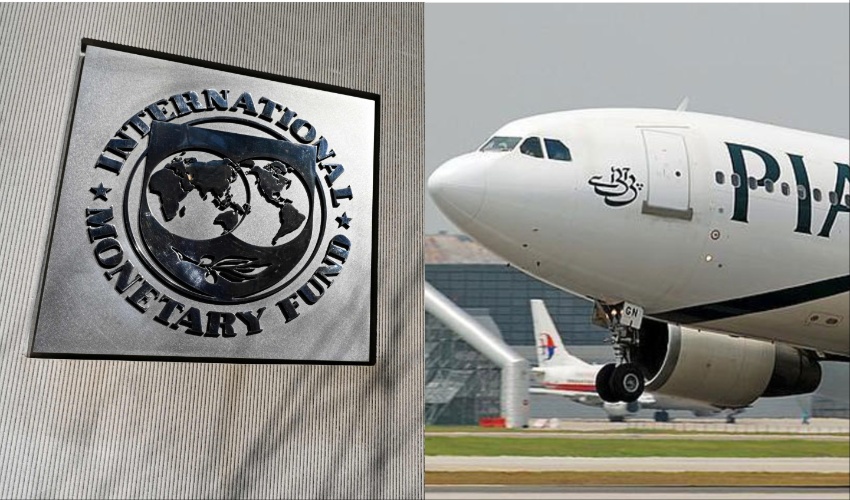|
Getting your Trinity Audio player ready...
|
Pakistan faces mounting pressure from the International Monetary Fund (IMF) to present a comprehensive plan for the privatization of state-owned enterprises, with a specific focus on national carrier Pakistan International Airlines (PIA). This development comes as the Pakistani government and commercial banks engage in negotiations to finalize loan terms for the airline’s privatization process.
PIA Privatization: A Loan with a High Price Tag
Sources close to the discussions reveal that finalizing the loan agreement hinges on potentially high-interest rates. Negotiations suggest a possible 12% interest rate through term sheets with commercial banks. Once the loan terms are locked in, banks will issue the necessary No Objection Certificates (NOCs), greenlighting the privatization process.
Read Also: Pakistan’s New Finance Minister: Can Aurangzeb Tackle Economic Crisis in 2024?
Focus Beyond PIA: Tax Reforms and Fiscal Health
While PIA Privatization takes center stage, the IMF also demands a broader strategy to bolster Pakistan’s economic well-being. Discussions are planned with the Federal Board of Revenue (FBR) to address tax policies, administration, and methods to enhance revenue generation.
The IMF has reportedly expressed concerns regarding the performance of Pakistan’s energy sector. Meetings with the Ministry of Energy aim to tackle issues like circular debt and unfavorable power purchase agreements.
Negotiations Encompassing Multiple Facets
Talks scheduled to continue until next week will delve into strategies for managing the fiscal deficit and preparing the upcoming federal budget. Other agenda points include updates on the State Bank of Pakistan’s new polymer banknote initiative and progress reports on Pakistan’s adherence to the United Nations Anti-Corruption Convention.
Second Day of Scrutiny: Pakistan on the IMF Microscope
These discussions mark the second day of a comprehensive review of critical economic matters between Pakistan and the IMF. IMF representatives are holding meetings with officials from various institutions, including the Ministry of Finance, FBR, and the Ministry of Energy.
The objective is to gain a thorough understanding of domestic financing aspects such as government guarantees and expenditures in crucial sectors like healthcare and education.

